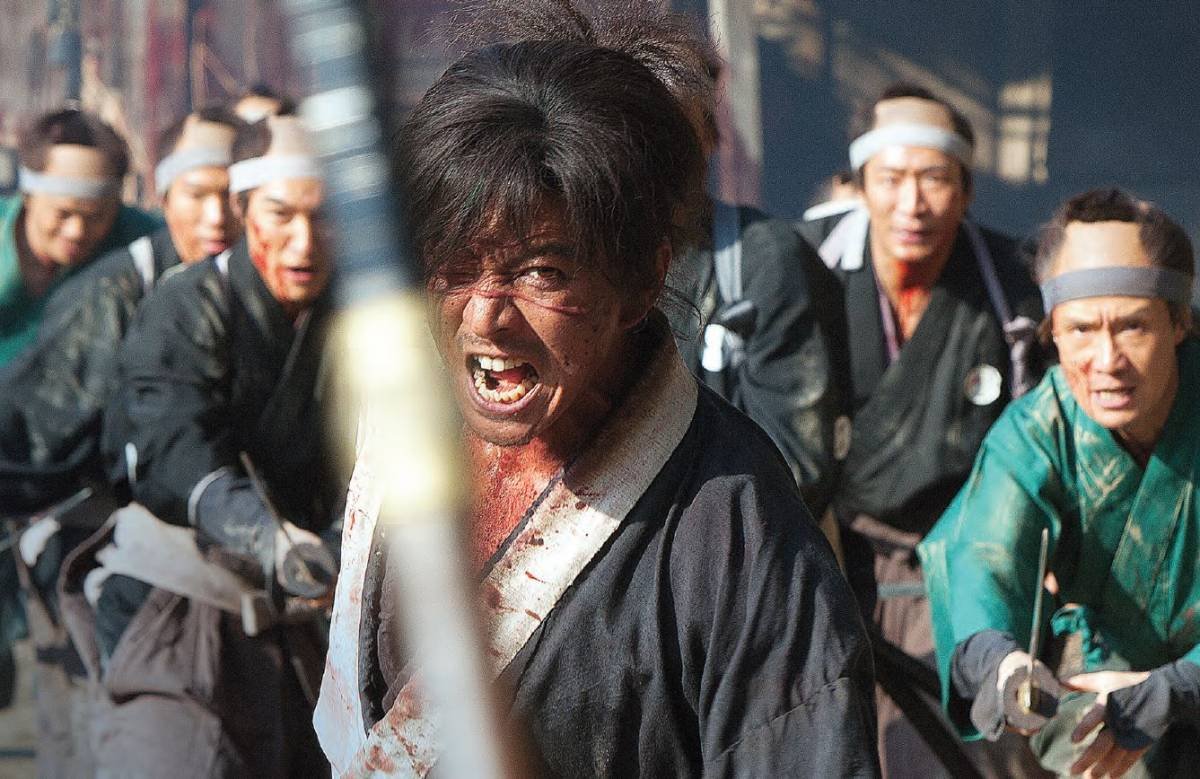Maybe it’s undue modesty, but Takashi Miike scoffs at the idea that his name alone is enough to sell a movie. “I’ve made one hundred movies and there are lots of those one hundred movies that didn’t sell very well,” the near-legendary Japanese director tells the Straight, speaking through a translator during a call from New York. “Although I do think that there might be a bit of a cult following for some of my films.”
Well, that certainly isn’t up for debate. With titles like Audition, Ichii the Killer, and Visitor Q (an extremely explicit satire drenched in incest, necrophilia, and, er, human lactation), plus dozens of others besides, the 57-year-old filmmaker long ago established himself as a peerless purveyor of extreme transgressive cinema wedded to dazzling technical skill and a soaring intellect. His work has simultaneously won the adulation of gutterball gorehounds and high-minded film critics alike. It’s not all that anomalous that Miike's latest feature, the supernaturally-inclined samurai epic Blade of the Immortal, opens at the multiplex on November 17, the day after a special preview for cult-heads at the Rio Grind Film Festival, and a week before starting an encore three-day run at the classy Vancity Theatre next Friday (December 1).
Miike’s one-hundredth feature does represent something of a transition, however, for a filmmaker who eagerly toiled inside Japan’s straight-to-video V-Cinema market for a big chunk of his career. Even with weightier enterprises like 2010's 13 Assassins behind him, casting a star as humongous as Takuya Kimura as his lead in Blade of the Immortal—adapted from the much-loved, long-running manga by Hiroaki Samura—feels like the collision of two very different worlds. For his part, Miike mounts one of his most handsome (though still extraordinarily bloody) productions, while Kimura takes on his role as the long suffering, unkillable samurai Manji with oodles of wry charm. As something of an introduction for both artists to mainstream North American audiences, Blade emerges as a very hot collaboration.
“He was cool, he was handsome, he was absolutely at the top of Japanese film and TV for 25 years,” says Miike of his star, whose stratospheric success began in the early ‘90s with the J-pop boy band, SMAP. “I said, ‘I really believe, for my own reasons, that only you, out of all the actors in Japan, can faithfully portray Manji. I know you have a lot of fans and those fans might feel betrayed, and they might be bewildered by this new development, but I just ask you to consider it, and if you want to do it, to be very courageous and bold making sure that you can embody the character of Manji.’
“I felt like, on some level, he instinctively knew the exact same thing that I felt about it,” Miike adds, while Kimura clearly took “bold” and “courageous” to heart, fighting barefoot for most of the film in dizzyingly choreographed sequences of full-body violence. (He kills 100 guys in the first scene alone). But the vital quality Miike sensed in Kimura was something altogether more subtle. “Because of the nature of his career, I felt like he would probably be very lonely,” explains the filmmaker. “I felt like he would get Manji in his own, very unique way. I felt maybe this would almost betray his previous 25 years, but he was also in a situation where he couldn’t escape. This was a life event for him. Because of all these things, I just felt like he was just going to be the person for this role.”
A samurai cursed with immortality by a mysterious witch, Manji’s plight is embodied with a kind of cranky humour by Kimura, teamed here with a teenage foil (Hana Sugisaki) who presses the swordsman into battle against a mysterious fighting sect bent on destroying every dojo in Edo. Wild violence and humour aside—the film's array of weirdo villains and insane weaponry is already worth the price of admission—Miike keeps his more perverse inclinations under control. But he clearly delights in the apocalyptic implications of the story.
“I kinda wish I could be Manji,” he says. “I say that because he’s suffering, but he’s still immortal. His whole existence is this endless, repetitive cycle of encounters with other people and then having to say goodbye, encounters and then partings, encounters and all of those people eventually die, and he goes on. So for him it truly is Hell. However, even though it’s Hell, you would have this unfathomable chance at extreme entertainment that no human had ever contemplated before. You would presumably continue to survive until you could see the end of humanity, until everyone is wiped out, there are absolutely no records left. You would be present for that.
“There’s a part of me that’s very, very curious about it, but it would be impossible for me to actually endure,” the filmmaker pauses to chuckle, “since I can’t stand pain.”
Georgia Straight, November 2017
